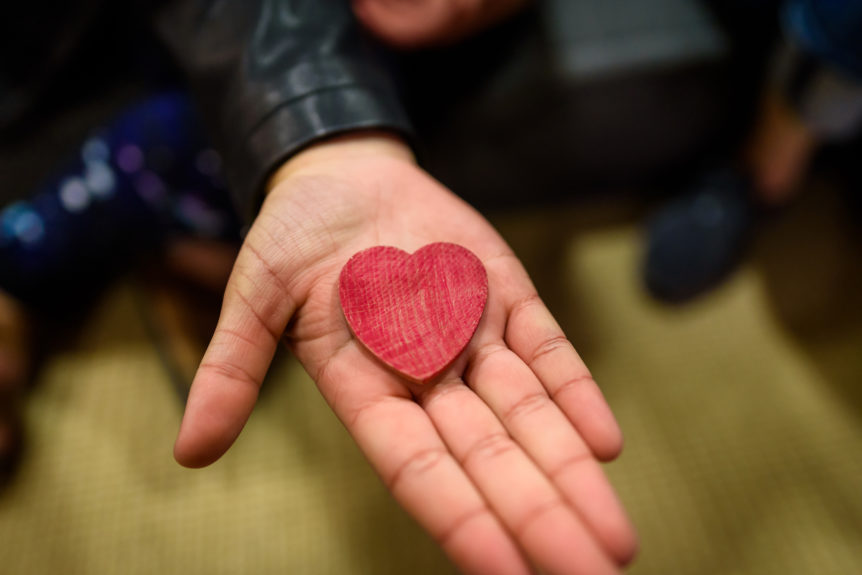A STATEMENT FROM GOOD GRIEF CEO, JOE PRIMO:
When violence occurs in our community, near our home, and to those we love we are challenged by a daunting question: what do we tell the children?
Today, violence resulted in its ultimate evil and ended at least 6 lives in a Jersey City shooting; simultaneously a stabbing occurred in Newark in which 2 children were stabbed, one of which has died. Both of these terrible events occurred near Good Grief’s satellite locations, which emphasizes the importance of our expansion into both communities. What we tell the children in a sound bite is not nearly as important as how we support them through this moment and the future.
Death impacts an entire community. We cannot forget, pretend, or intentionally ignore the fact that children are particularly vulnerable after death and violence within their community. Violence in all of its manifestations is a cancer on the psychological health and wellbeing of a child. It is a threat to both physical and psychological safety. When violent death happens, we must respond with the same urgency as all deaths. However, because many violent deaths are messy and full of complex feelings, it may be all the more difficult to find the words to have open and healthy conversations with children.
As schools went into lockdown today, we have a need to acknowledge fear, uncertainty, and even the indifference that might result from a growing frequency of lockdowns in our children’s educational development. Lockdowns are not normal. We should not normalize this new reality.
When a child is afraid or wrestling with big and scary feelings they cannot easily articulate, adults need to speak to the heart of the matter. Here are some tips:
- Honesty – children need facts to process what happened and why. They don’t need every detail, but to deceive with false information or inadequate information is to deny them the ability to make sense of the event. Similarly, facts help construct a real story rather than an imaginative one that may be even scarier. Kids talk to kids. Equip children with facts.
- Safety – kids need assurance that they are safe and they will be okay. We can’t promise that violence won’t happen to them or in their neighborhood. Instead, we need to define what safety looks and feels like and direct them to identify those places in their life where they do feel safe.
- Check-ins – violence and death are big topics. These are not throwaways over dinner, in the car, or in passing. Our goal as adults is to teach and guide a child through life. There is adversity everywhere. Every adversity is an opportunity to build resilience, but it requires us to engage the hard conversations often and consistently.
- Don’t assume – kids may not articulate their feelings. Don’t assume violence is not affecting their emotional, physical, intellectual and spiritual selves. Create a safe space for non-judgmental sharing and exploring.
- Don’t try to “fix it” – our job as adults isn’t to make it better. There are so many things we can’t fix. Instead, our goal is to guide a child with compassion and empathy. With nurturing, love, and responsiveness we can model what kindness looks like for a child. Modeling is how love wins.
- Shut off the tv – take charge of the narrative. Be in control of what your kids hear and offer a safe space for them to process the information with you.
- Meaning-making – it is not your job to give all of the answers. As adults, even we don’t have all the answers. Trust that a child can become more resilient if provided with safety and accurate information and given the space to explore.
As Good Grief’s hero, Fred Rogers, once said, “We live in a world in which we need to share responsibility. It’s easy to say ‘It’s not my child, not my community, not my world, not my problem.’”
Keeping children physically and emotionally safe is all of our work. We must all join in and ensure that no child has to grieve death or the loss of their safety alone. Every child and every loss matters as children confront a world that tilts between kindness and violence each and every day.
For more resources on how to support children and talk about death, please visit: www.good-grief.org/resources
###
Good Grief is respected as a national leader in delivering grief services to children and their families. It is the leading provider of these services in New Jersey serving over 850 participants each month. Good Grief is a registered 501(c) (3) tax-exempt non-profit organization whose mission is to provide unlimited free support to children, teens and families after the death of a parent or sibling. Serving 165 communities, we operate programs in Morristown, Princeton, Jersey City, and Newark. For more information about Good Grief, please visit our web site www.good-grief.org.

